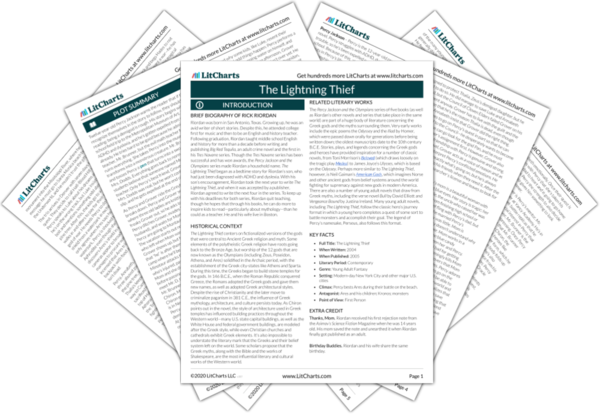Here, Percy receives confirmation that he’s a pawn and not necessarily a thinking player: the gods need humans, and demigods to do their dirty work for them. Further, Chiron also confirms that rational, open communication doesn’t necessarily work the way Percy thinks it should when dealing with divine conflicts like this. What does work are games, deceit, trickery, and heroics. While it’s possible to find instances like this in the mortal world too, this makes Percy feel very out of his element. He knows that open communication works, so it’s a shock to hear that it won’t apply to this situation.


